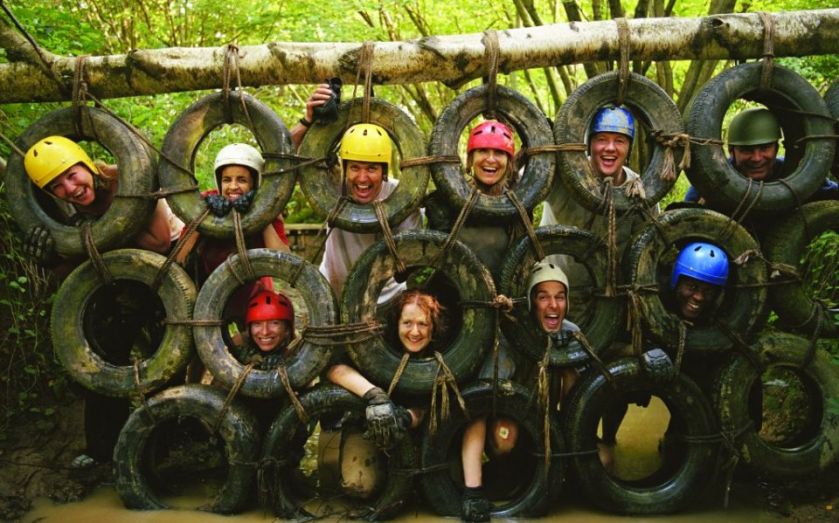Could your staff benefit from team coaching?

Hitting on the ideal group dynamic is hard but transformative.
Team coaching is a complicated but rewarding task. For starters, it’s difficult to define: is it individual coaching with team members, or is it team building exercises? Is it coaching in a group, or organisational development? The point is that it’s all of these things: it brings employees together to develop their own skills, awareness and learning – as a team.
As our businesses and working environments undergo radical transformations, it is crucial that we are still able to operate successfully as teams. The challenge of group coaching is integrating a wide-range of developmental tasks, alongside requiring an investment of time and money. But it can be an enormously rewarding experience for individuals, and hugely valuable for company culture.
Peter Hawkins, author of Leadership Team Coaching, says that while there have been hundreds of new books, courses, and accreditations about business coaching for individuals, coaching colleagues together is a relatively neglected subject.
Moving leadership from a single person to the collective doesn’t happen overnight. It requires a well-qualified team coach who can create the right environment and tools to facilitate it. But when successful, it can be transformational. Here are just some of the ways in which it can benefit business.
FROM “I” To “WE”
The rationale for team coaching is built on the premise that even though individuals may have received and benefited from excellent one-to-one executive training, they may still be on a “different page” to other members of their team or company. Until everyone is working to the same agenda, the full benefits of individual coaching will not be fully realised. Team coaching allows individuals to reach their potential, and it helps a team to better understand its purpose and how it can best operate as a whole.
WORKING TOGETHER
By coaching a team together, including the leader, challenging behaviours is undertaken collectively. This enables everyone to see the process developing in real time and, importantly, to own the resulting outcome. The team coach should, by observing and taking a non-directive approach, allow the group to take control of and resolve its issues and challenges. Reaching a solution together will pay dividends in terms of group solidarity.
TACKLING ISSUES
More crucially, the contribution of each member is magnified through interactions with other team members. This means that specific relationship dynamics between individuals can be maximised to solve problems presented.
Finding the right group dynamic to solve a problem together can be challenging. But it is precisely because deep-rooted issues are being addressed that the experience can be transformative. Sharing issues and solutions means no one person can take credit or blame, and profound improvements for individuals and the group as a whole can take place in a relatively short space of time.
John Leary-Joyce is the founder and president of the Academy of Executive Coaching. Its next free Introduction to Coaching seminar is on 24 February.
Collaborate on to-do lists
Free
Calling itself the home of the world’s lists, and with 9m users, Wunderlist is on its way. The app takes task management to another level, allowing you to create lists and manage what you’ve got to do on mobile devices as well as desktop. These lists can be shared with other Wunderlist users so that you can work collaboratively on them, adding timelines, notes and comments. It has recently joined up with Dropbox, so you can link to documents through the app.